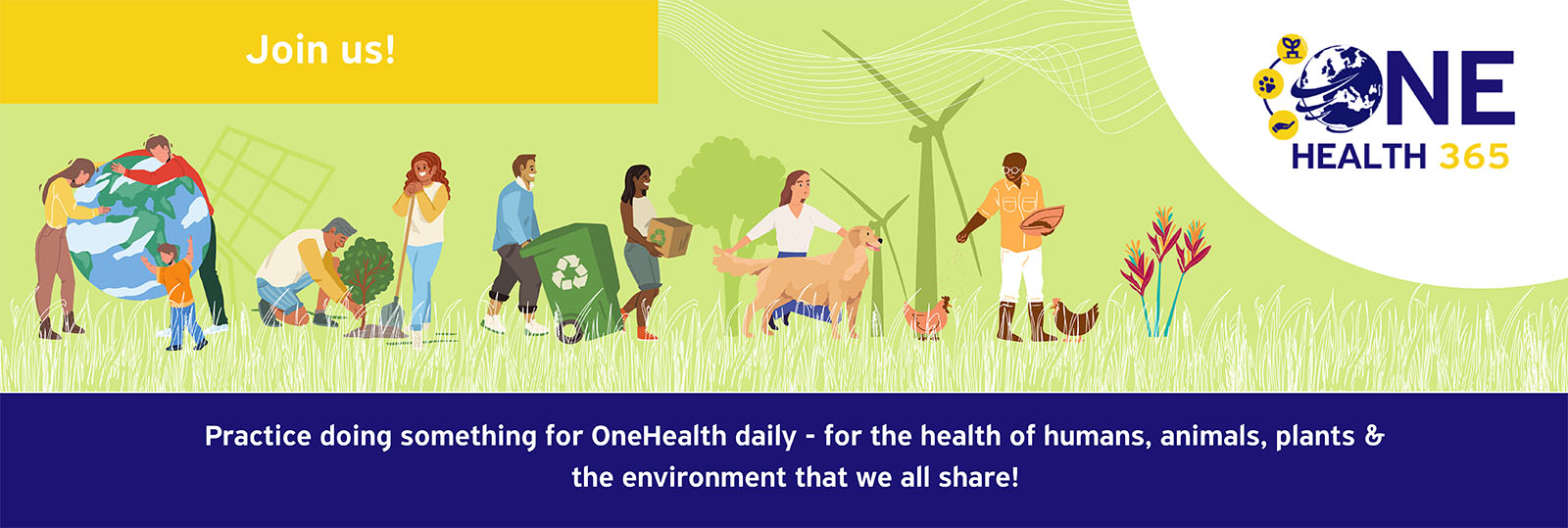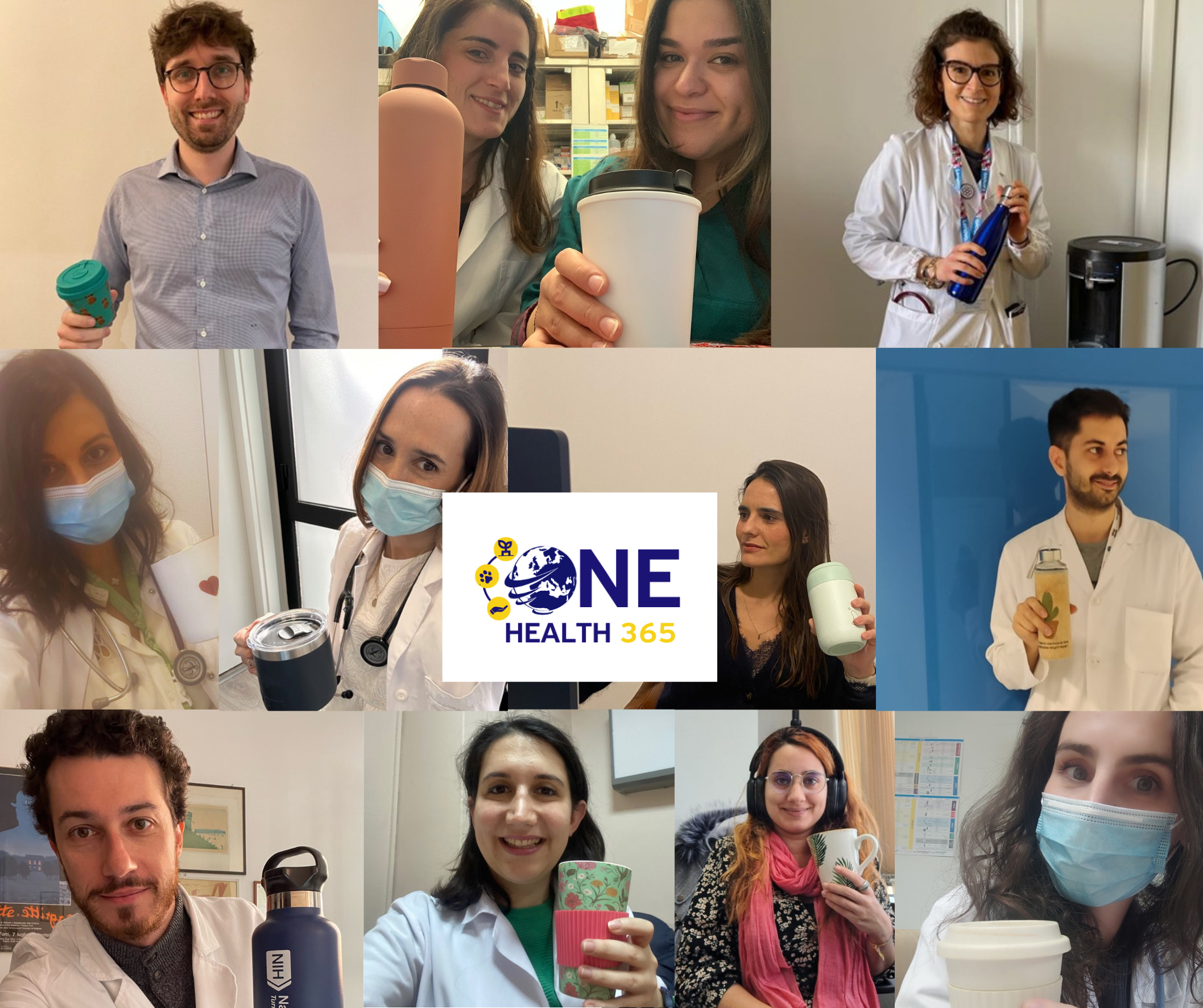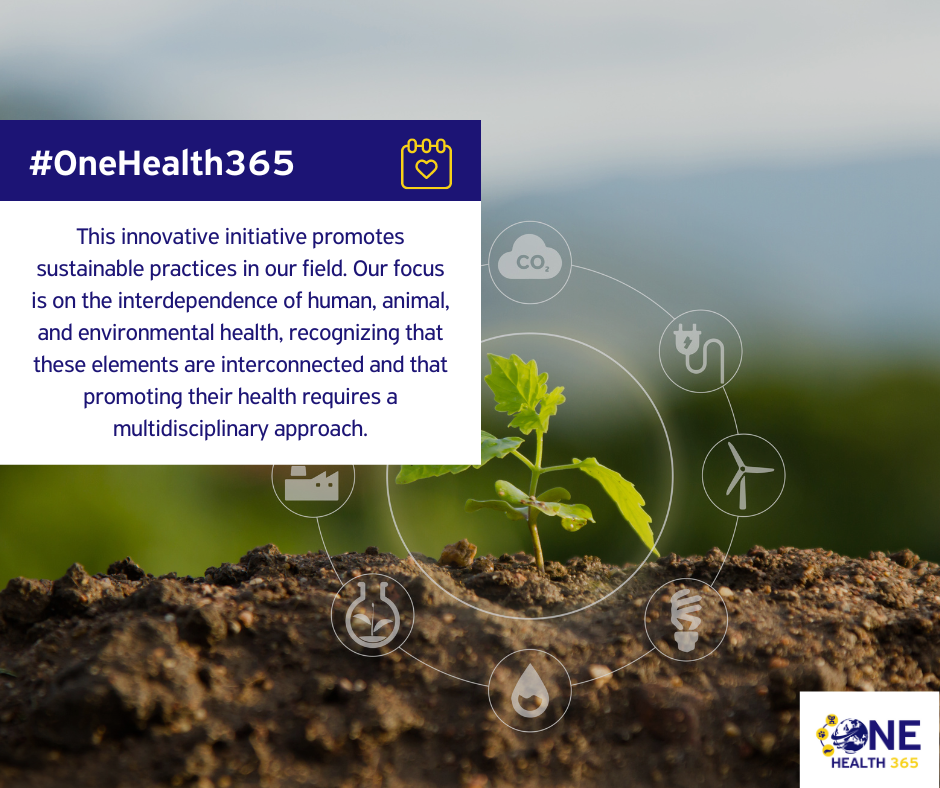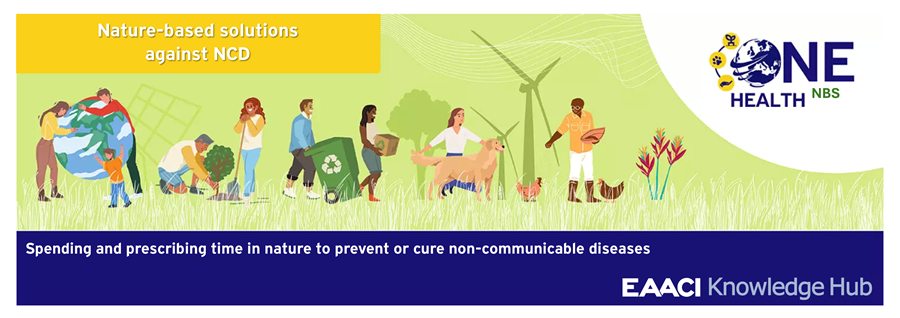EAACI One Health 365
EAACI One Health 365
At EAACI, we embrace the OneHealth concept recognizing that the health of people and animals and the health of our shared environment are interconnected and interdependent.
We believe that each of us can contribute to OneHealth. Therefore, we would like to invite you to join us and start a daily practice of performing small acts for OneHealth – for the benefits of your own health, the health of your family, the health of other people, animals, plants, other organisms, and the health of the environment we all share. We invite you to participate and share your commitment, your ideas and small real life experiences or stories with others in person or on social media or by sending us an e-mail.
As we consider the own workplace or home as best platform to maintain OneHealth, we suggest to start on your own, in your family, with your children, with colleagues at school or working place, in the community, or in the local or global government.
Research shows that conscious acts of kindness, giving, and compassion are the best way to make us happy. Let’s do this together and contribute to a better world.
Be an inspiration to others, and share what you do for OneHealth today.
Have a great OneHealth day!
From the EAACI working group OneHealth
Isabella Pali-Schöll, chair
Jozef Janda, secretary
Ines Paciencia, board member
Bernadette Eberlein, board member
Chandni Mathur, board member
How to participate in EAACI OneHealth365
Share your experiences with others:
- Join Facebook group
- Post on social media using #OneHealth365
Send an e-mail to communications@eaaci.org
Visit EAACI Knowledge hub for more news
Start a daily practice of performing small acts for OneHealth
The OneHealth365 initiative would like to inspire you with some ideas for your ‘lowest hanging fruit’.
For everybody:
- Plant a tree (or many, and many diverse ones), also in the city you have the possibility – ask your responsible county-mayor, write an email directly
- Plant a (bee) flower bed or even a small box on your windowsill – it makes a huge difference!
- Start permaculture: many diverse plants and leaves, wild meadow
- Dig your hands (and those of your kids) into soil
- Use sustainable/alternative mobility whenever possible – get to places by foot, use a bicycle, use the train/tram/metro
- Only buy what you really need
- Save water
- install sensor-operated taps
- short showers instead of baths (this is also very beneficial for the health of the skin, especially for young children)
- Save energy (turn off devices that are not needed, install sensor-operated lights)
- Cut down on usage of highly chemical/synthetical/environment-detrimental products: body products, perfumes, deodorants, disinfectants
- Change to sustainable cleaning products (hydrogen carbonate, vinegar)
- Change to solid products (hand and body and hair soap) instead of fluids
- Wear second-hand clothes (beneficial also for young children – potential chemicals from industry are already washed out)
- Stop usage of one-time plastic (use re-usable permanent-bags, re-usable plastic, glass wear, breadboxes, cardboard boxes, paper bags, buy unpackaged fruits and vegetables)
- Eat more plant-based food instead of meat (animal product), and if you do eat meat- buy very high-quality, regional, organic products which focus also on animal welfare
- Save food (buy high quality, regional, seasonal, organic food – in this order; and only as much as you consume; or share with your neighbor)
- Re-sell products at flea markets, online second-hand shops, pre-owned products etc.
- Use “ecosia” as a search engine
For healthcare professionals:
- Inform patients AND politicians/city planners about the benefits of positive measures contributing to One Health (e.g. CO2 reduction, sustainability, avoiding waste and pollution, saving on food, energy, water; change to a plant-based diet; create wider green parks in cities, green roofs, green buildings; use bio-hydrogel to save water and rescue plants during droughts etc.
- Be a role model and adjust the health care system to a more sustainable resort as it currently accounts for approx. 5% of net global climate emissions (e.g. switch to sustainable inhalers, save energy and water, cut down on resources, use telemedicine, avoid pollution, use sustainable -public- transport for staff, patients and goods etc.)
- Apart from many studies that still need to be performed, it seems much more important to make use of real-world data, where Artificial Intelligence (AI) for analysis of existing big data sets could further help to find fast and practicable measures
We welcome your ideas and initiatives on “Nature-based solutions (NBS): prescribing time in nature to protect and optimize health of people and animals”.
Aim:
- Create guidelines about spending time in the natural environment and nature-based lifestyle (diet, mobility, epithelial barrier protection) as preventive and curative measures against non-communicable diseases, including allergies and asthma
- Inform physicians, health care professionals, politicians, teachers/kindergarten personnel, city- and landscape planners, architects, lay people, parents, and patients).
What is NBS?
“Nature-based Solutions leverage nature and the power of healthy ecosystems to protect people, optimise infrastructure and safeguard a stable and biodiverse future.”
(https://www.iucn.org/our-work/nature-based-solutions)
Your input:
- Which ideas do you have on this topic? (e.g., vegetable field in school backyard)
- Which initiatives did you make, or have you observed?
- Which topic shall not be forgotten? (e.g., thinking about costs, infections, allergies)
- Which topic would you like to see included? (e.g., indoor green walls)
- Would you like to be included as an expert or discussion partner in this EAACI WG OneHealth/ROC project?
We look forward to your feedback, ideas, suggestions, and comments (also anonymously, if preferred) until the end of July 2024 under the following:
Discover fascinating insights in our EAACI WG One Health Webinar “Nature-based solutions (NBS) and non-communicable diseases”:
https://hub.eaaci.org/education_webinars/nature-based-solutions-nbs-and-non-communicable-diseases/
Should you have further questions please do not hesitate to contact us (inespaciencia@gmail.com).



